
Opera 5's Barber: fab singing & Spanish flair
ReviewOpera 5’s Il barbiere di Siviglia is up and running at The Factory Theatre, marking the company’s first production with its new leadership: Artistic Director Jessica Derventzis and Music Director Evan Mitchell.
As one hopes, the stars of this Barbiere are in the cast of singers. Stephanie Tritchew is Rosina incarnate, a spicy, likable mix of girlish and old-soul, and with all the street smarts that help free Rosina from her house-arrest-type life with Dr. Bartolo. Hers was the best singing of the night; I haven’t seen Tritchew in a role like this before, and it was exciting to hear the crystal-clear coloratura and fun abandon of Rossini’s writing fit her like a glove.
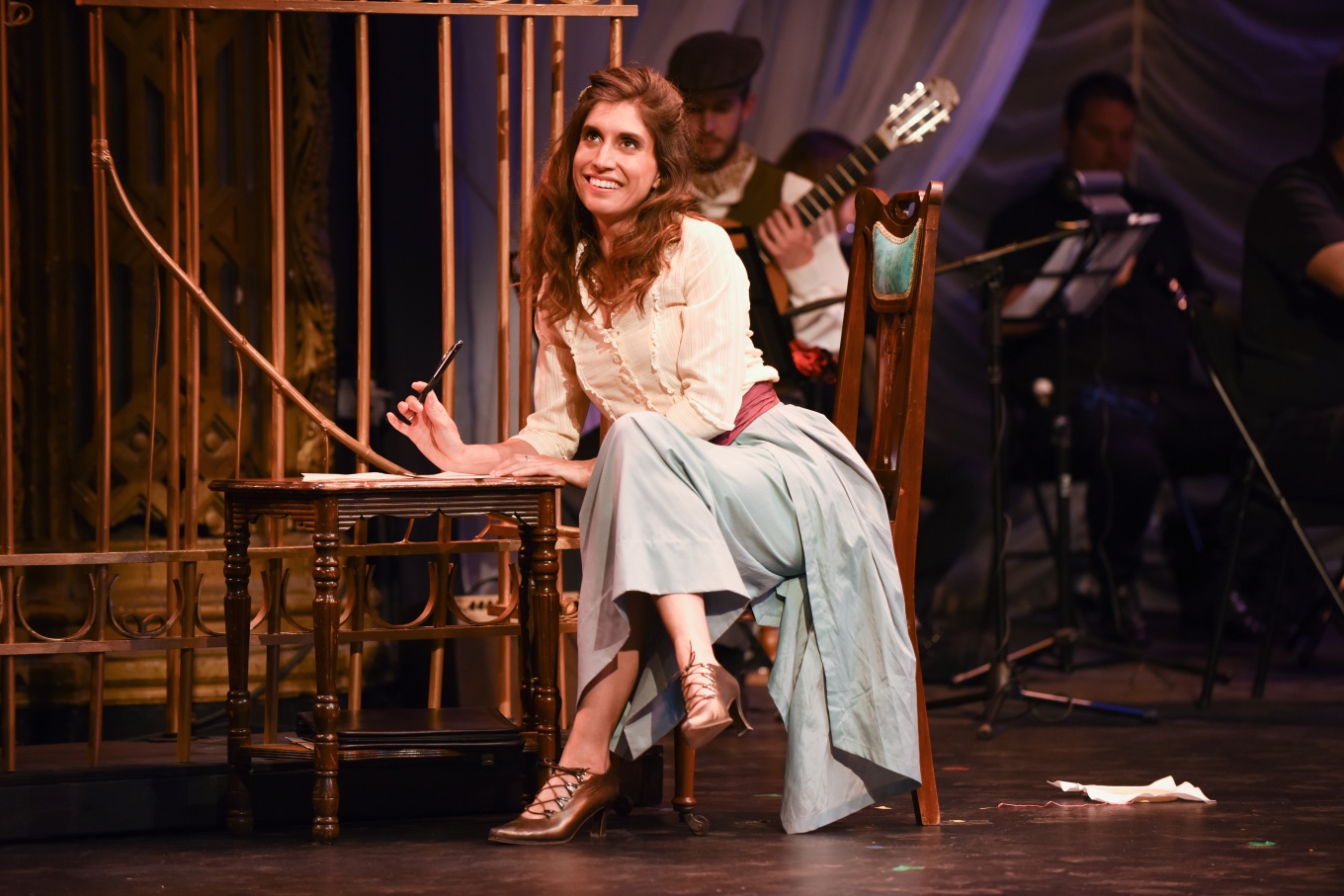
Johnathon Kirby is a breath of fresh air as Figaro, with virility in his sound and exhaustive energy in his movements. He has the ability, like any great Figaro, to steal whatever scene he’s in, and his comic timing is top-notch; in this role, his singing is the best I’ve heard (including high G’s for days). Kirby is a great foil to Kevin Myers as Almaviva, the lovesick Count who has absolutely zero game, but at least knows to enlist the Barber for help getting Rosina. Myers sings with impressive cut in his sound, and takes hilarious vocal risks in his scenes as a drunken soldier and substitute singing teacher.
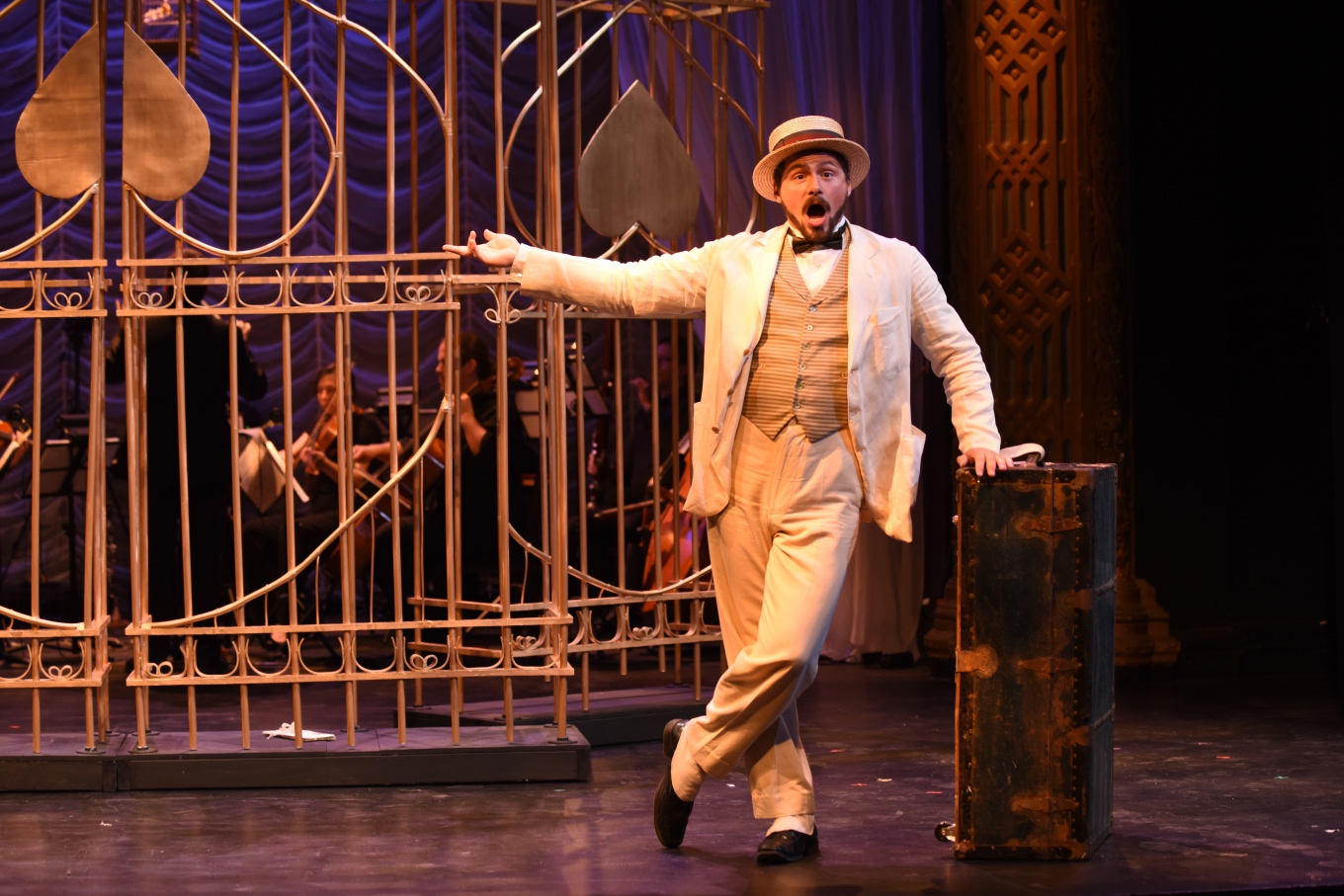
Jeremy Ludwig and Giles Tomkins were a dynamic duo of buffo as Don Bartolo and Don Basilio. They both created pathetic villains out of the Dons, whom you’re always excited to see onstage, despite their hateful actions. Ludwig especially reminded me of how utterly funny he can be onstage; his comedy is in the details, like his loathsome looks at Berta during the storm scene, as she dared to let the umbrella slip from above his head. Speaking of Berta, Megan Miceli was delightful in the role, and her Act II aria was smartly sung (and hilariously staged).
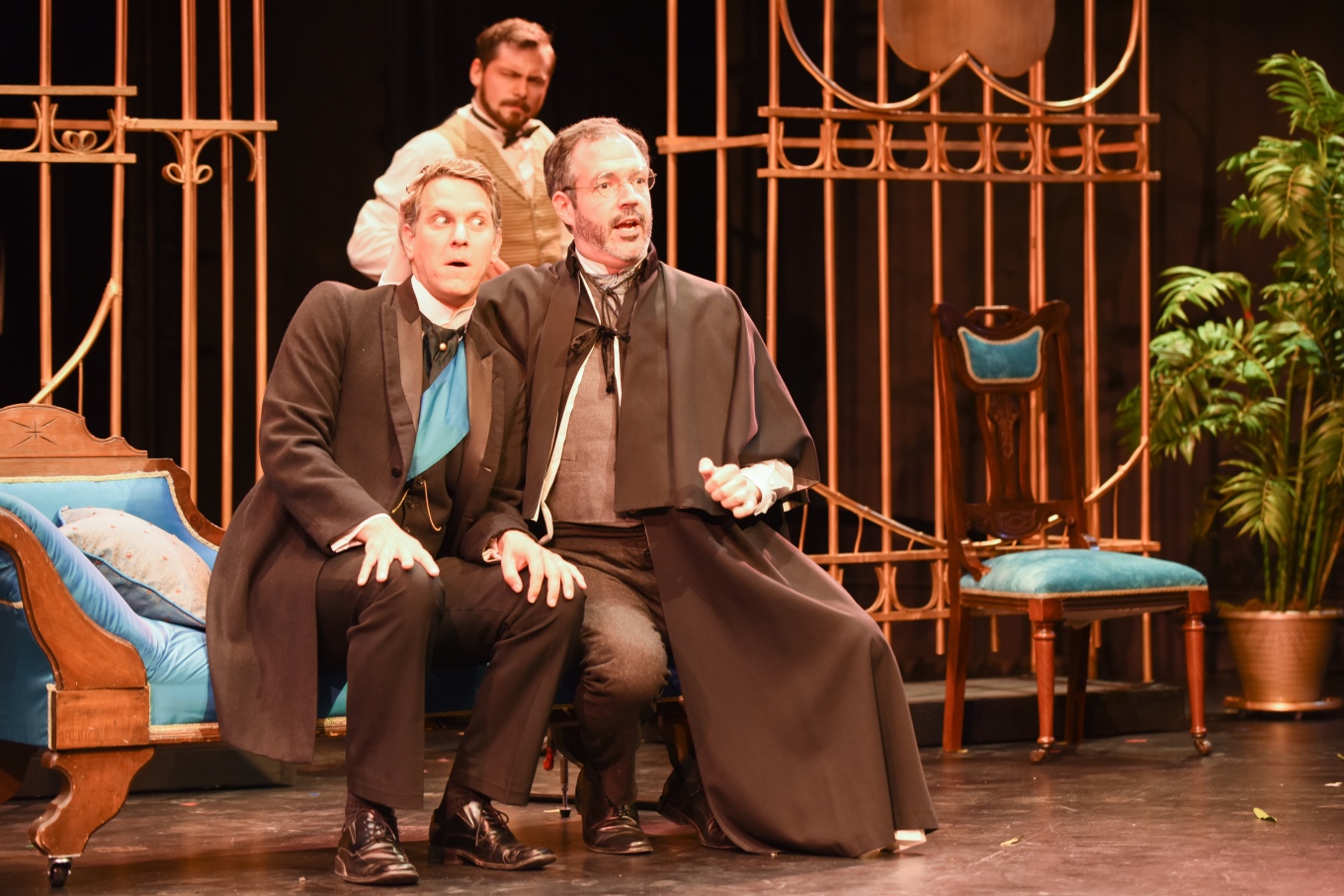
Derventzis’ production, for the most part, stays out of the way of the stuff of this opera, which lies in the character relationships and the music that tells us about them. She sets this Barber in 1914, on the cusp of WWI; knowing this offers a bit of context for the idea of billeting soldiers, and the freshness of the women’s suffrage movement. Yet aside from the costumes - particularly those on Figaro and Don Bartolo - there was little evidence of time and place. Not that we needed it, either. The strong cast carries this story, which seems to exist above and aside a literal setting, the only earthy nods being the Spanish sounds in Rossini’s score.
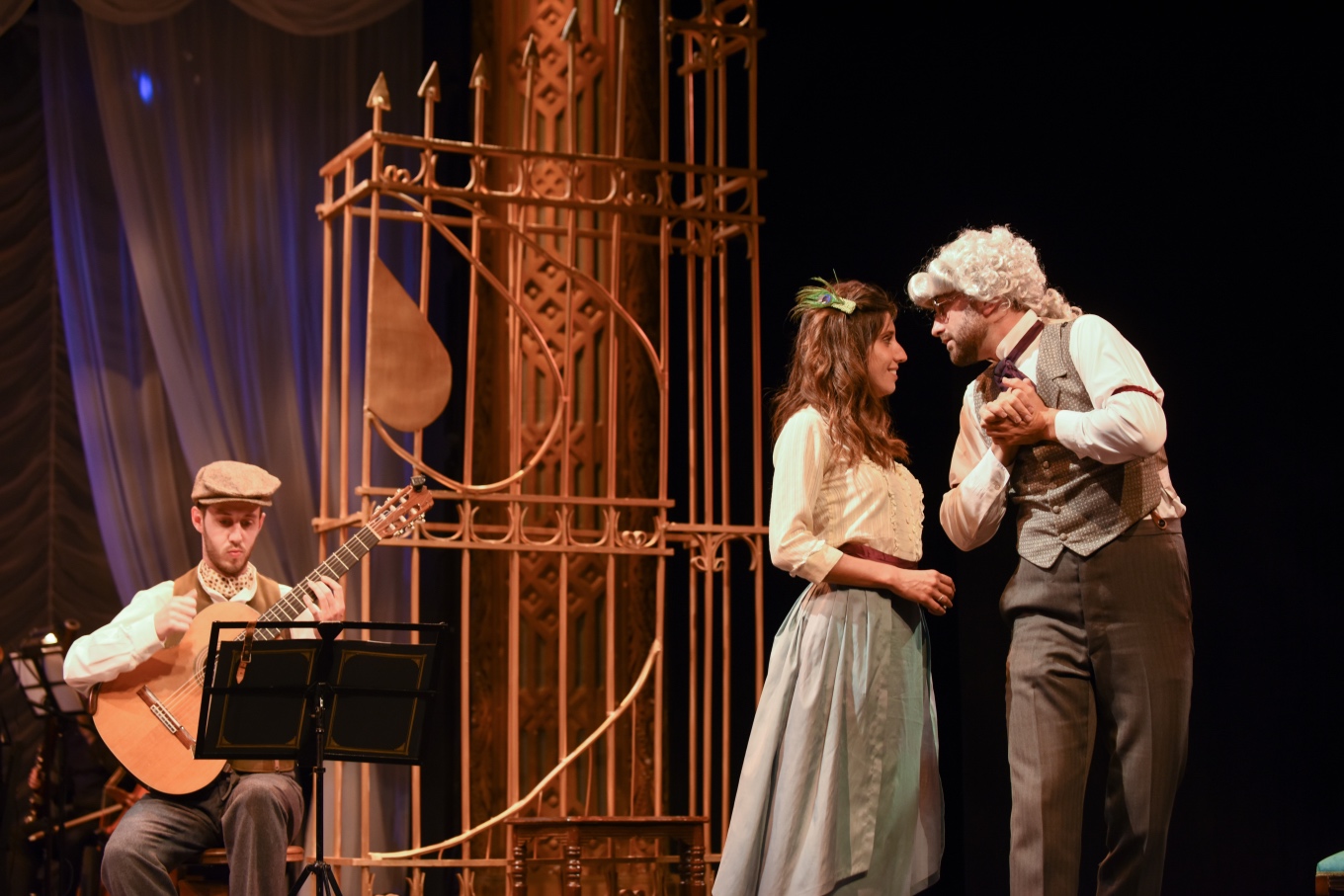
One great concept is putting guitarist Andrew Cloutier into the action. He plays all the recitatives - a perfect sound that piques interest without pulling focus - and he plays a wordless role as the accompanist to Almaviva’s serenades to Rosina, and to Rosina’s singing lesson with “Don Alonso”.
Rossini’s infamous score is pared down to chamber-orchestra-size and Mitchell and his players are place onstage, upstage of the action. It’s an elegant solution to the Factory Theatre’s lack of a pit, and the reduced orchestra makes the score refreshingly transparent (albeit at the cost of a few Rossini crescendi). Still, the upstage orchestra sacrifices cornerstone elements in the music of Barbiere, in the communication between singer and conductor.
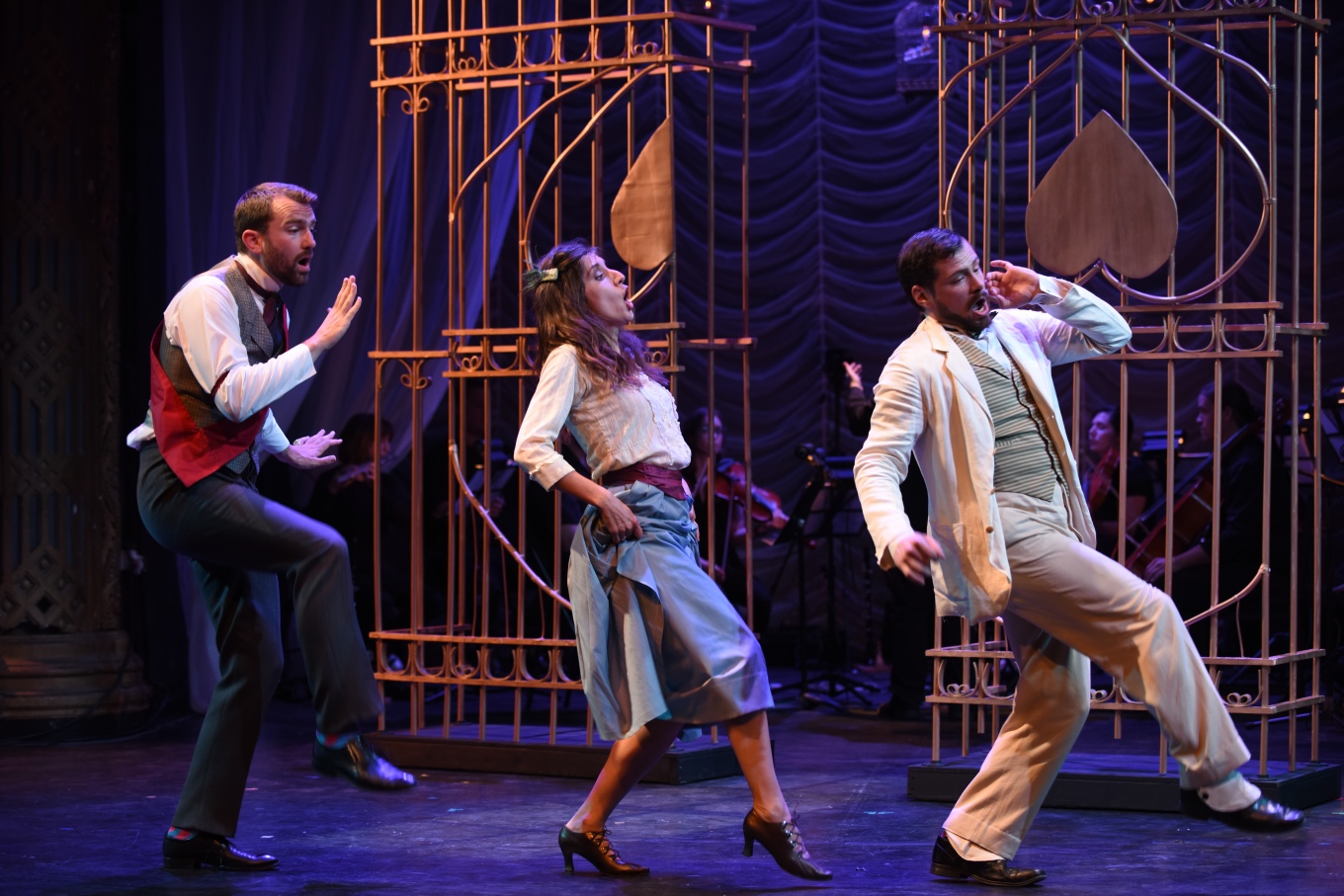
No doubt, conducting bel canto opera out of view of the singers wouldn’t be Mitchell’s first choice. It’s a circumstance that leaves a conductor few choices - during performance, at least - but to listen like crazy to the singers, and follow their lead. It was odd, then, to hear some orchestral sluggishness, some digging in of heels against the brisker tempos some of the singers tried for.
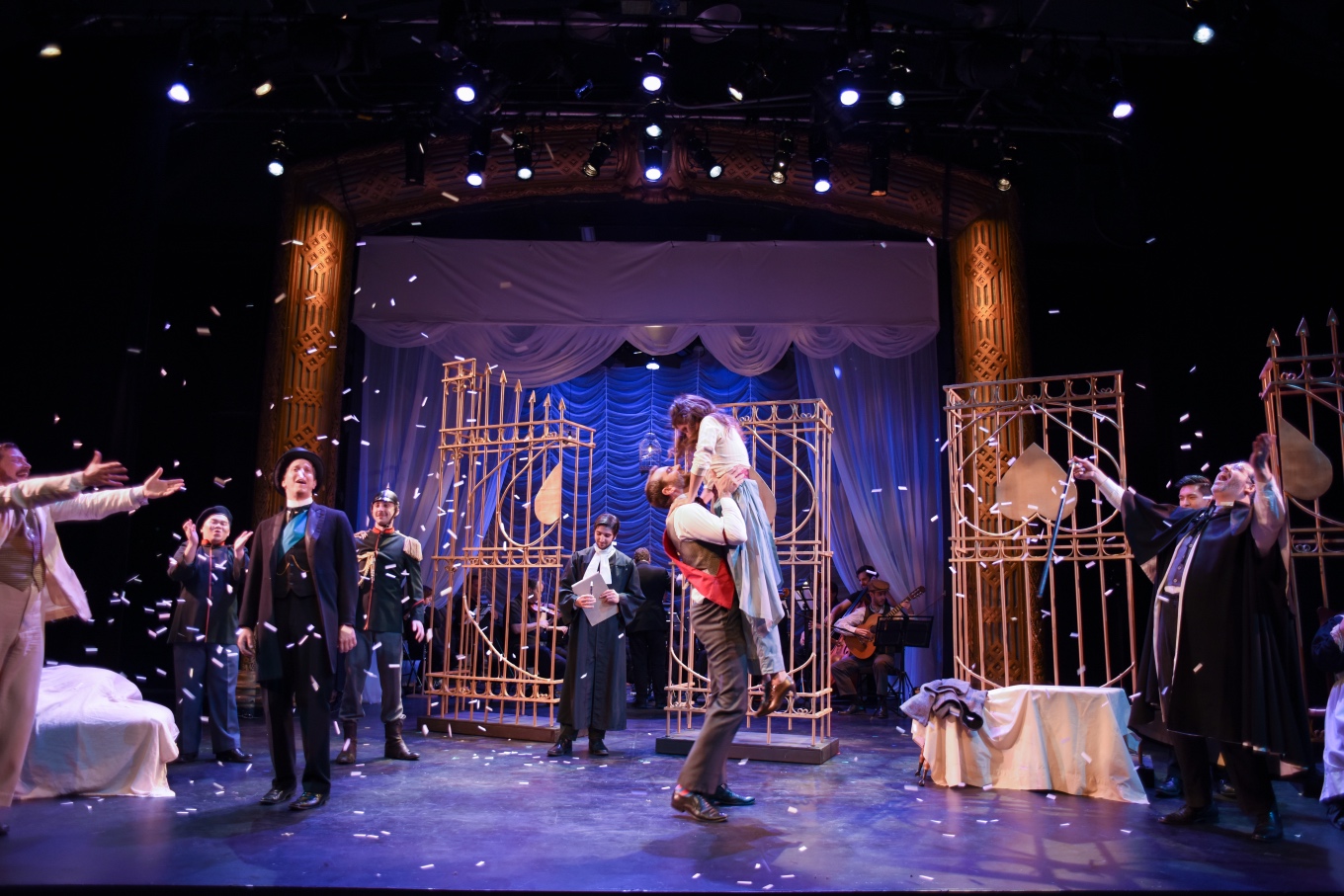
Il barbiere di Siviglia is a great night of comedy, and it’s worth hearing the great singing from Tritchew, Ludwig, Myers, Tomkins, and Kirby. It runs through June 17 at Factory Theatre, 125 Bathurst St. For details and tickets, click here.

Comments